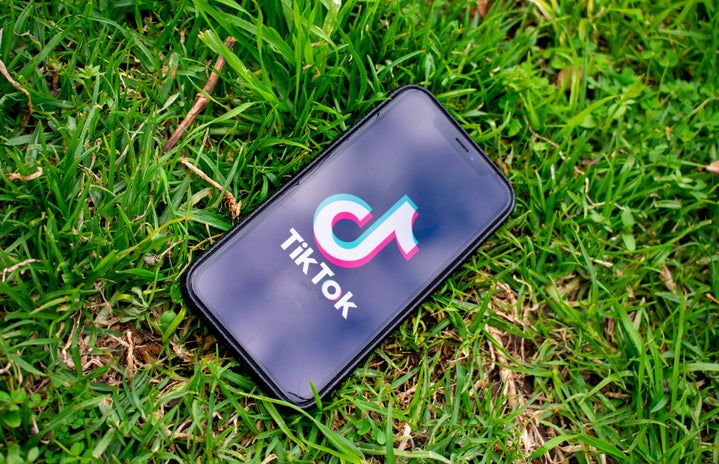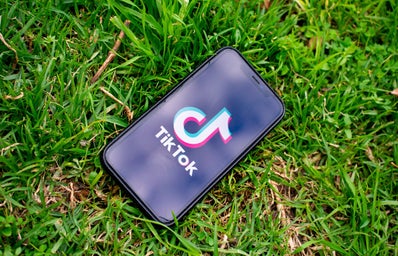Like any college student, I have developed a crippling addiction to aimlessly scrolling through TikTok and ignoring all of my responsibilities. I can only think of about two people who don’t share that addiction, and that number was far greater pre-quarantine.
TikTok is the fastest growing app in history and has launched many average teenagers into the spotlight; with stars like Charli D’amelio accumulating over 95.5 million followers and growing, being a TikTok star is now an actual profession.
TikTok allows you to upload 15 to 60 second videos featuring either audio already uploaded onto the app or your own original audio. Every week there seems to be a new trend or dance that floods users For You Pages, and that always seems to be subconsciously memorized.
TikTok is very reminiscent of Vine, which dominated much of GenZ’s childhood and humor. In my opinion, it takes a very refined form of comedy to land in only short videos, but many of the app’s stars have quickly mastered this. I probably scroll through thousands of videos in just one day without realizing it, dramatically increasing my screen time, but also decreasing my ability to focus on longer forms of entertainment like TV and movies.
This phenomenon is something I found myself really starting to question when classes resumed this fall. Sitting through an hour long class was really no problem for me last year, even after classes transitioned online. Now, I can barely make it 15 minutes without reaching for my phone and opening the app (which is horrible, I know).

I’ve always been an active social media user and I’ve had TikTok for about two years now, but I’ve never experienced this feeling of aimlessly scrolling until recently. This has led me to wonder–what makes TikTok different from other social media apps, and why has my addiction to the app gotten so much worse?
One of the reasons I think TikTok has become so addictive among college students is everyone is using it. Just scrolling through my text conversation with my roommate we probably send each other at least fifty TikTok’s a day, even though we spend most of our time only a few feet apart from each other and should be focusing on our school work instead.
It’s well known that the rise of social media has affected users’ need for instant gratification and attention span. For many, our entire lives are on social media and, for better or for worse, it’s how we stay connected and participate in society. Apps like Instagram and Snapchat allow the user to maintain connections that they would have already lost, but TikTok is unique in that what’s on your feed often isn’t from people you know.

So how has an app that features complete strangers for only a few seconds at a time become so ingrained in daily life?
It comes down to constant stimulation. New content is constantly available from across the world, unlike other apps like Instagram on Snapchat there really is no way to stop scrolling and finding new videos.
Many people have decided to uninstall the app because of the impact it’s had on their lives. Rebecca Mann, a sophomore at American uninstalled TikTok about a month ago. “I felt I was addicted to it and it was decreasing my productivity, it became a habit,” Rebecca said. “I spend less time on my phone overall and I’m more productive.”
Our need for immediate entertainment has dramatically changed in only a few years going from two-hour movies, hour long TV shows, 15 minute Youtube videos and now only second long videos. I used to love watching TV, but now I only really watch it when I can’t fall asleep at night, because I genuinely cannot focus on an hour long episode.
I’m not saying that TikTok is the only reason I cannot focus, but it would be naive of me to think that it did not have some sort of impact. It also leaves me wondering how this will affect my academic and professional life.
There is little research that has been done on the effects of social media on attention span, let alone the effects of TikTok on attention span. In the coming years this will become an important feature in research on mental development and ability to focus among youth.

I have no idea how to overcome this challenge and I’m sure this is something that many other students are dealing with. I’m grateful that I’ve already had the time to develop healthy academic and professional habits that keep me engaged, even when I feel like my attention span is worsening. Younger students are not this lucky.
My younger cousin is a freshman in high school, she’s the one that first introduced me to all the TikTok trends and dances. I asked her how she thought TikTok affected her academic performance to which she replied, “TikTok distracts me and it takes longer to complete school lessons. I’ll sit down to take a 10 minute break to scroll through TikTok and I end up scrolling for an hour.”
Elementary school children now are growing up in a world with constant stimulation and instant gratification, how this will affect them in the long term and if our society will be forced to adapt to this is something we can only hypothesize? Nonetheless, I hope it is something that parents and teachers will keep in mind moving forward.
Photos: HerCampus Media Library



